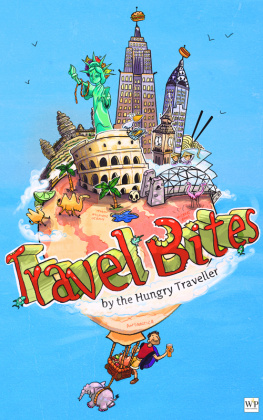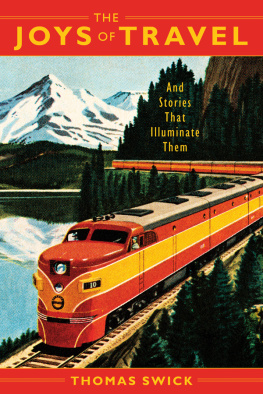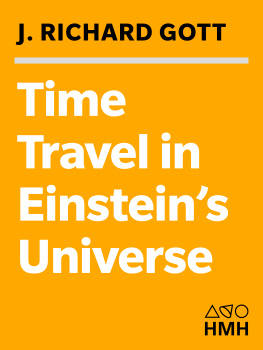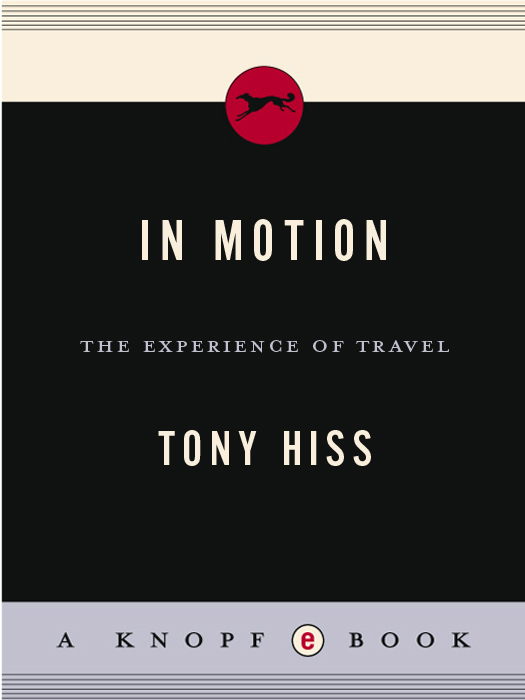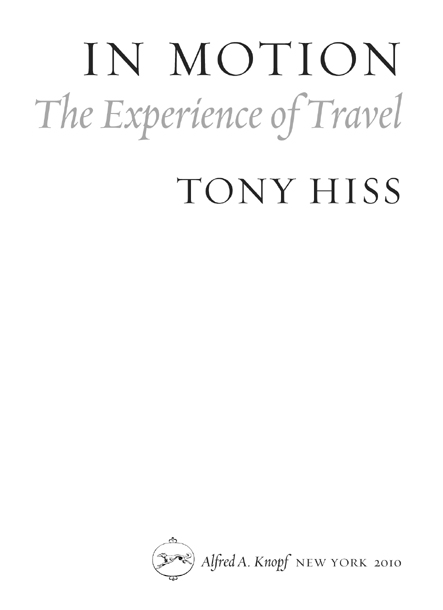ALSO BY TONY HISS
H2OHighlands to Ocean: A First Close Look at the Outstanding Landscapes and Waterscapes of the New York/New Jersey Metropolitan Region
(with Christopher Meier)
Building Images: Seventy Years of Photography at Hedrich Blessing
The View from Algers Window
Disarming the Prairie
(with Terry Evans)
Prairie Passage: The Illinois and Michigan Canal Corridor
(with Edward Ranney)
All Aboard with E. M. Frimbo
(with Rogers E. M. Whitaker)
A Region at Risk: The Third Regional Plan for the New YorkNew JerseyConnecticut Metropolitan Area
(with Robert D. Yaro)
The Experience of Place
Laughing Last
Know-How: A Fix-It Book for the Clumsy but Pure of Heart
(with Guy Alland and Marion Waskiw)
The Giant Panda Book
ILLUSTRATOR
The Bird Who Steals Everything Shining
EDITOR
Henry Chungs Hunan Style Chinese Cookbook
This Is a Borzoi Book Published by Alfred A. Knopf
Copyright 2010 by Tony Hiss
All rights reserved. Published in the United States by Alfred A. Knopf, a division of Random House, Inc., New York, and in Canada by Random House of Canada Limited, Toronto.
www.aaknopf.com
Knopf, Borzoi Books, and the colophon are registered trademarks of Random House, Inc.
Grateful acknowledgment is made to the following for permission to reprint previously published material:
Alfred A. Knopf: Excerpts from The Magic Mountain by Thomas Mann, translated by John E. Woods, translation copyright 1995 by Alfred A. Knopf, a division of Random House, Inc. Reprinted by permission of Alfred A. Knopf, a division of Random House, Inc., Alfred Publishing Co. Inc.: Excerpt from Let Down by Thomas Edward Yorke, Jonathan Richard Guy Greenwood, Philip James Selway, Colin Charles Greenwood, and Edward John OBrien, copyright 1997, by Warner/Chappell Music Ltd. (PRS). All rights reserved. Reprinted by permission of Alfred Publishing Co. Inc., Doubleday: Excerpts from The Dance of Life by Edward T. Hall, copyright 1983 by Edward T. Hall. Reprinted by permission of Doubleday, a division of Random House, Inc. Dutton and Octagon Press Ltd.: Excerpt from Where it Went by Hasan of Basra, excerpt from Profiting by Experience and Two Reeds by Jalaludin Rumi, and excerpt from Safety and Riches by Saadi of Shiraz from The Way of the Sufi by Idries Shah, copyright 1968 by Idries Shah. Reprinted by permission of Dutton, a division of Penguin Group (USA) Inc. and Octagon Press Ltd. Octagon Press Ltd.: Excerpts from Adventures in Afghanistan by Louis Palmer (London: Octagon Press, 1990). Reprinted by permission of Octagon Press Ltd. Random House, Inc. and Random House Canada: Excerpts from The Head Trip: Adventures on the Wheel of Consciousness by Jeff Warren, copyright 2007 by Jeff Warren. Reprinted by permission of Random House, Inc. and Random House Canada. Richard Curtis Associates Inc.: Excerpts from China to Me by Emily Hahn (New York: Doubleday, 1944). Reprinted by permission of Richard Curtis Associates Inc. David Wagoner and the University of Illinois Press: Excerpts from Speeding from The House of Song: Poems by David Wagoner, copyright 2002 by David Wagoner. Reprinted by permission of David Wagoner and the University of Illinois Press.
Library of Congress Cataloging-in-Publication Data
Hiss, Tony.
In motion: the experience of travel / by Tony Hiss.
p. cm.
eISBN: 978-0-307-59439-6
1. TravelPsychological aspects. I. Title.
G 151. H 57 2010
910.01dc22 2010004143
v3.1
TO LOIS AND JACOB
CONTENTS
Two reeds drink from one stream. One is hollow, the other is sugar-cane.
JALALUDIN RUMI (12071273)
Deep in the sea are riches beyond compare. But if you seek safety, it is on the shore.
SAADI OF SHIRAZ (11841291)
DEEP TRAVEL
A lthough I was only leaving the house for a few minutes and only to run a few errands (mail a couple of bills; pick up an iced coffee at the local bagel shop), and although it was a perfectly ordinary day, like hundreds of others that unfold in any year, year after year, something was no longer the same. Before the door had even closed behind me, the familiar world outside immediately seemedunexplored. That comes closest to describing the unexpected sensation that had arrived. Fresh and new were part of it, but only a part, even though there were undoubtedly now some things present that hadnt ever previously appeared on my block, such as the particular play of light on the buildings across the street, and the array of zigzaggy clouds in the sky overhead, and the patterns formed by the various groups of people walking by.
But it was the familiar objects, the ones that were still what they had always been, that seemed the most transformed. It wasnt as if they had changed shape or color, but they now seemed charged with purpose, beckoning, calling out, and almost glowing or shimmering, with each detail etched in the sharpest kind of focus. Each thing I looked at seemed now to have a story curled inside it, and to represent something that many people from many places and times had thought about over long periods with great care and deliberation and a kind of intelligence that takes generations to accumulate and then get sifted through and refined and pared down. The corner mailbox, for instance. I live in Greenwich Village, in New York Cityhave done so for most of my lifeand the corner mailbox has been there for as long as I can remember.
Battered, blue, durable, unprepossessingalready obsolete some might say. Square on the bottom with a rounded top and a squeaky, pull-down handle that needs a certain decisiveness to open and close, it was something Ive often used but had never at any time given the kind of close examination that it in factwhat? needed; deserved; wanted? Wantedthat seemed as close to it as anything. I was at the moment wide-awake in a way that reached out in all directions. Awareness and attention had been intensified, reorganized, redeployed, and I was abruptly eager to know more.
That was one thing. Yet, inanimate as it remained, it seemed in this same moment almost as if the mailbox, too, were reaching out in my direction, that it was broadcasting on a wavelength I wasnt normally tuned to, and that when I listened as well as looked, if that was the right way of putting it, let me understand that it was as eager as I was, and pleased to have its role and purpose and its previously overlooked impressiveness better known and securely remembered. But there was more than one role or function involved, as I could already make out. On the one hand, it was just a few cubic feet of public space set aside and protectedfrom the elements; from any maraudersso that outgoing mail could accumulate for several hours. On the other hand, it was the near end of a global force, an energy stream in constant motion and powered by millions of workers in all countries that can redistribute envelopes and packages to any spot in the world. Then, too, it was also a place of irrevocability, because once it had received something for transmittal, there was no getting that thing back.




